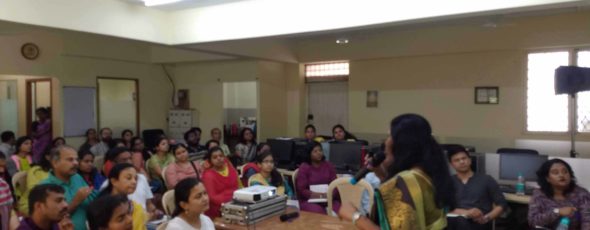Copyediting – Career Opportunities and Options

What is copyediting? The process of copyediting implies checking for errors, repetition, and inconsistencies in a document prior to its publication. In other words, copyediting helps to ensure that the writing is clear, the choice of words is apt to the context of the document, and also flows in a logical and consistent manner. That is, a copyeditor catches the mistakes made by an author. The job of a copyeditor is to search for and rectify errors in spelling, grammar, punctuation, facts, and style (e.g., sentence style, headline style, etc.). Overall, a copyeditor focuses on the language details of a document, going through it sentence by sentence, to ensure that the writing accomplishes the goal it is intended for, that is, it reads well and is appropriate for its audience.
Is it the same as proofreading? An associated term, sometimes used interchangeably with copyediting, is proofreading. Proofreading refers to the process of checking a document for quality and tidying it up and comes after the copyediting process.
Why is copyediting important? All “copy” (i.e., the raw draft of a document), whether a news or research article, thesis, dissertation, assignment, web page, book, advertisement, brochure, blog post, benefits from a copyeditor’s attention. A study found that a document is considered more trustworthy when it is error-free. A copyeditor can even collaborate with writers and help them improve their writing.
Can anyone copyedit? Yes, the author, his/her friends, everyone can copyedit. However, an expert copyeditor is trained to help the voice of the author shine through a document by carefully eliminating errors in text and presentation, and improving the language.
How does it benefit the author if he/she can copyedit his/her own work? You can scan your writing for grammatical errors and also refine your writing to meet acceptable academic standards.
I am a research scholar, how can copyediting help me? One, you will be able to sign-off on your research paper/thesis with increased confidence. Two, your overall language skills will be strengthened. Three, once you have finished your own paper/thesis, you will become a member of a distinguished group of scholars who can pass on their knowledge and guidance to another generation of students.
What do I need to know to start copyediting? To copyedit, a good command of the language (e.g., English) is required. Moreover, a robust knowledge of grammar is required. A nice-to-have skill is domain knowledge (e.g., medicine, physics, chemistry, life sciences). Nevertheless, a copyeditor must be ready to copyedit any kind of document from any domain.
What are the career prospects for a copyeditor? Copyediting like other career streams has various prospects. For example, in a publishing firm, a copyeditor could start as a Junior Copyeditor, progress to Editor, then to Senior Editor, Editing Lead, Associate Manager-Editorial Services, Manager-Editorial Services, Senior Manager-Editorial Services, and so on. There are also specialist editors such as, Advertising Editors, Assignment Editors, Scientific publication editors, Academic copyeditors, to name a few.
Is there an age limit for a career in copyediting? There’s no age limit for being a copyeditor. You can start at any stage in life, the only requirement is the interest and skills.
Who hires copyeditors? Newspapers, publishing houses, content marketing agencies, communication solutions providers, proofreading service providers, editing service providers, journal publishers, online education services, travel websites, media organisations, etc.
Can copyediting be looked at as a main/supplemental/freelance career?Copyediting can be taken up as a full-time career as well as a supplemental/freelance career. The Internet is full of opportunities for copyeditors. Additionally, nowadays firms offer the option for a copyeditor to work full-time or as a freelancer.Moreover, they support telecommuting, so all you basically need to work as a copyeditor are a desktop/laptop, an Internet connection, and the necessary skills.
How can copyediting skills be acquired? Most organisations provide in-house training to the copyeditors they have hired. All you have to do is pass the entrance examination. Alternatively, a Professional Course in Copyediting & Proofreading can help you gain skills in copyediting and also help you prepare for any entrance/screening tests.
“Rehoboth Academic Services” is a premium institute supporting PhD & Master’s Thesis since 2013. We offer editing, proofreading, paper preparation, statistical analysis, formatting and plagiarism checking services. We have helped more than 10000+ research scholars
in most of the subjects and universities across the globe in the last eleven years. We also conduct Copyediting & Proofreading, Art of thesis writing, Research Paper writing, Statistical Analysis with SPSS Foundation &Advanced workshops. If you need our assistance please call 9731988227, 9741871657.